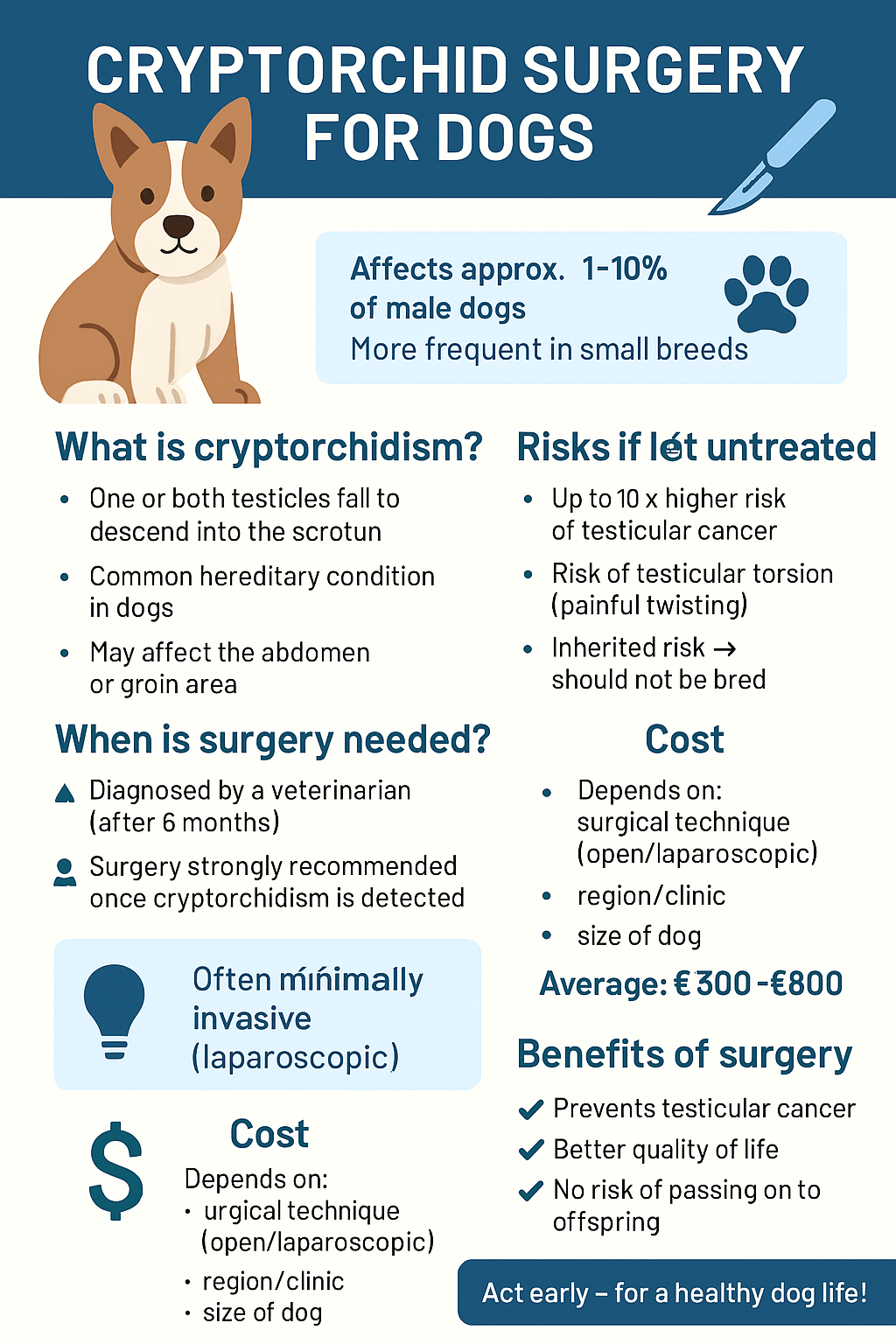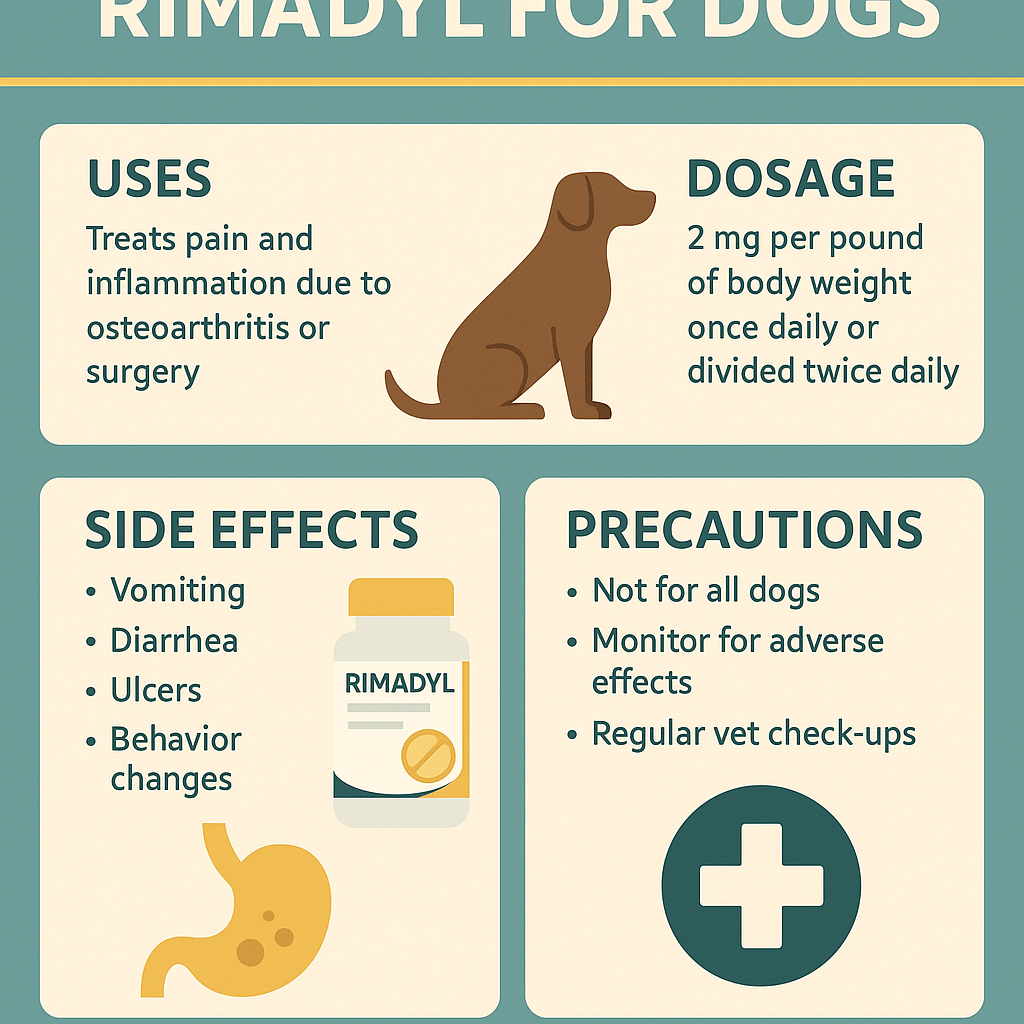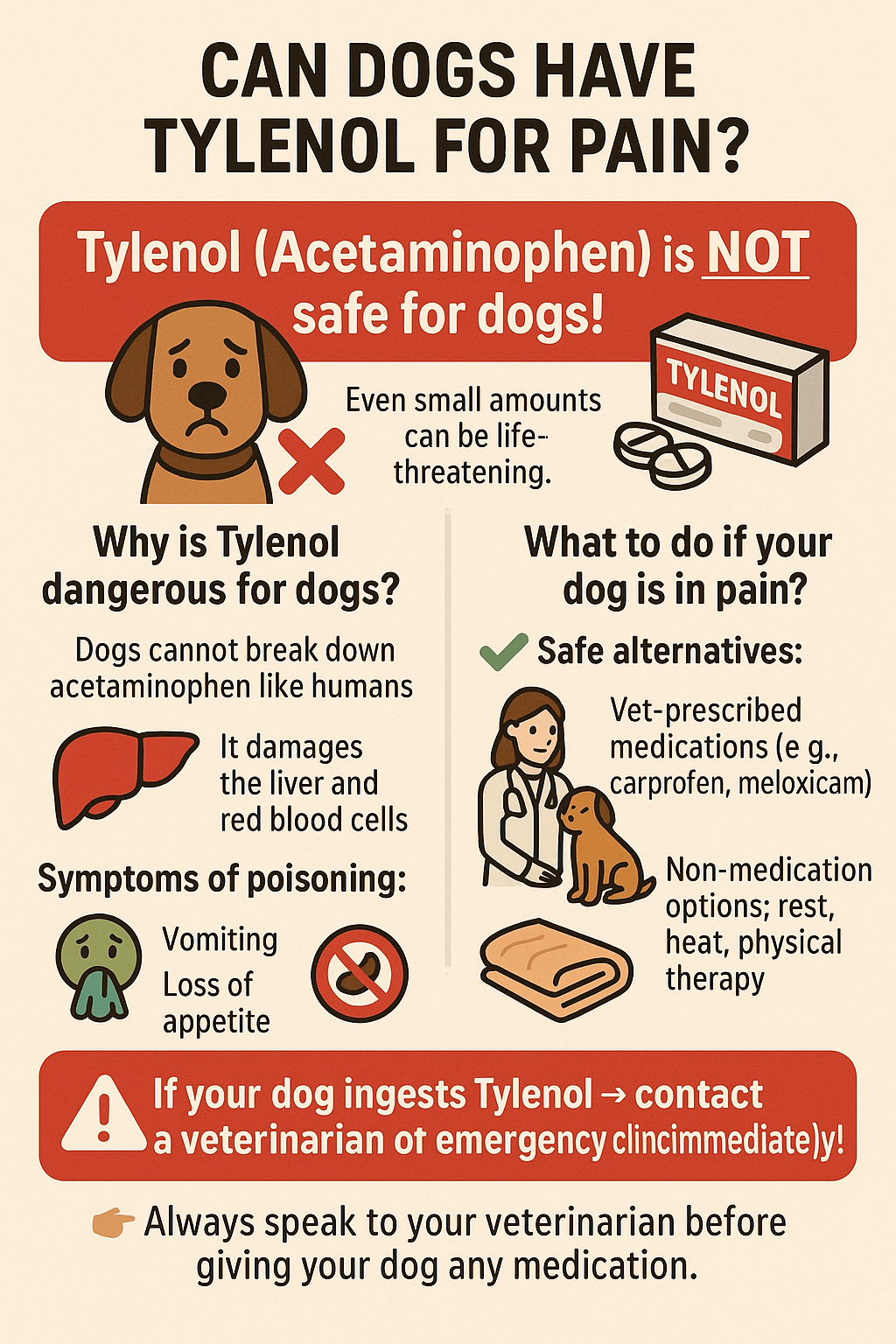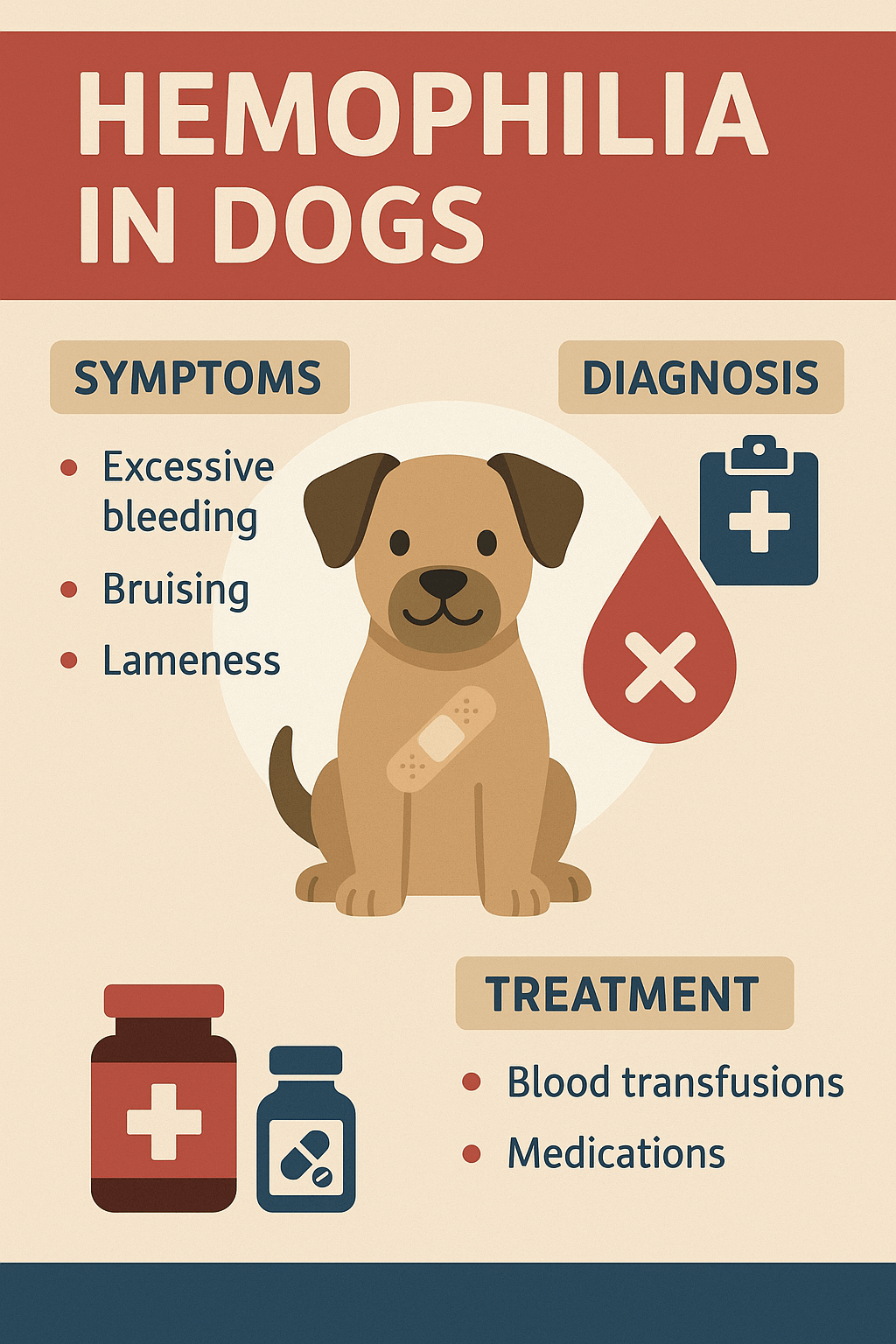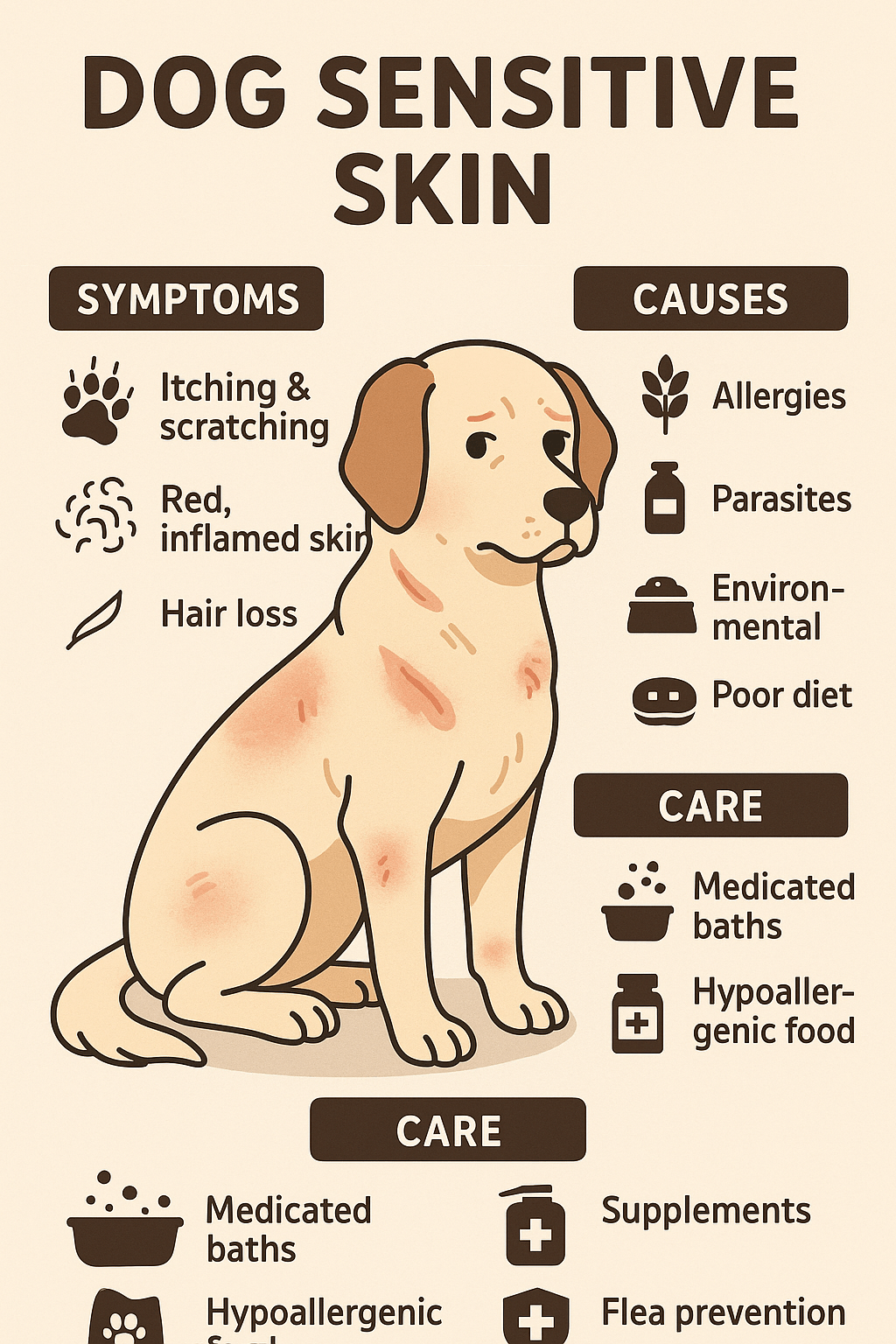Understanding Cryptorchid Surgery: A Vital Procedure for Pet Health
Cryptorchidism is a condition where one or both testicles fail to descend into the scrotum in male animals, most commonly seen in dogs. While it may seem like a minor issue, cryptorchidism can lead to serious health complications if left untreated. Cryptorchid surgery, also known as orchiopexy or castration, is the recommended solution to address this condition. This procedure not only corrects the anatomical abnormality but also prevents potential risks such as testicular cancer and behavioral issues.
In this blog post, we’ll explore everything you need to know about cryptorchid surgery, including its importance, the procedure itself, recovery tips, and more. Whether you’re a pet owner or simply curious about veterinary care, this guide will provide valuable insights into ensuring your furry friend’s well-being.
Expert Insight on Cryptorchidism in Dogs
“Cryptorchidism is one of the more common congenital abnormalities found in the dog, with small-breed dogs overrepresented. A recent study revealed that a variant of HMGA2 on chromosome 10 of the canine genome is associated with canine cryptorchidism and adult weight variance. The incidence of cryptorchidism in the dog is variable in the reported literature, ranging from 1.2% to 12.9%.”
What Is Cryptorchidism and Why Does It Require Surgery?
Cryptorchidism is a congenital condition that requires veterinary attention due to its associated risks. Understanding the reasons behind the necessity of surgery can help pet owners make informed decisions about their pet’s health.
Increased Risk of Testicular Cancer:
Retained testicles are more prone to developing tumors, with a significantly higher risk compared to descended testicles.Hormonal Imbalances:
Cryptorchidism can disrupt normal hormone production, leading to behavioral changes and reproductive issues.Infertility Concerns:
Animals with cryptorchidism often face reduced fertility or complete sterility, impacting breeding capabilities.Potential for Testicular Torsion:
Retained testicles are at risk of twisting, causing severe pain and requiring emergency treatment.Behavioral Problems:
Unneutered cryptorchid pets may exhibit aggression, roaming, or marking behaviors due to elevated testosterone levels.
Surgery is the most effective way to address these concerns, ensuring your pet’s long-term health and quality of life.
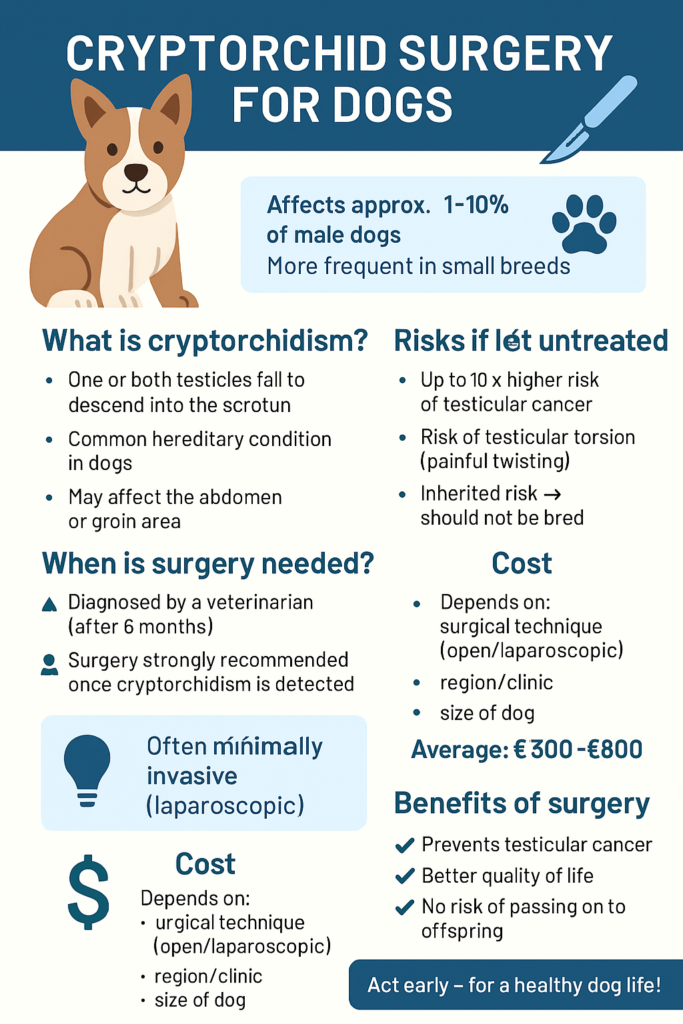
The Cryptorchid Surgery Process: What to Expect
If your veterinarian recommends cryptorchid surgery, it’s natural to wonder what the procedure entails. Here’s a step-by-step overview of what typically happens during the surgery.
Pre-Surgical Evaluation:
Your vet will conduct a thorough physical exam and possibly an ultrasound to locate the undescended testicle(s).Anesthesia Administration:
General anesthesia is used to ensure your pet remains comfortable and pain-free throughout the procedure.Incision Placement:
Depending on the location of the retained testicle (abdominal or inguinal), the surgeon will make an incision in the appropriate area.Removal of Testicles:
Both the retained and descended testicles are removed to eliminate health risks and prevent breeding.Closing the Incision:
The surgical site is carefully sutured, and your pet is monitored closely as they recover from anesthesia.
Understanding the process helps alleviate concerns and prepares you for your pet’s journey to recovery.
Check this guide 👉Understanding Cryptorchidism in Dogs: Best 7 Expert Tips!
Check this guide 👉Dog CCL Surgery: Best 7 Expert Tips!
Check this guide 👉Dog Cleft Palate Surgery Cost: Best 7 Expert Tips!
Benefits of Cryptorchid Surgery | Risks of Untreated Cryptorchidism |
|---|---|
Prevents testicular cancer | Higher likelihood of malignant tumors |
Reduces aggressive behaviors | Increased risk of testicular torsion |
Eliminates infertility concerns | Hormonal imbalances affecting health |
Promotes overall well-being | Pain and discomfort from complications |
Cost-effective long-term solution | Emergency surgeries due to torsion |
Post-Surgical Care Tips for a Smooth Recovery
Proper aftercare is crucial to ensure your pet heals quickly and avoids complications following cryptorchid surgery. These tips will help you provide the best care during recovery.
Monitor the Incision Site Daily:
Check for signs of infection, such as redness, swelling, or discharge, and report any concerns to your vet immediately.Prevent Licking or Chewing:
Use an Elizabethan collar (cone) to stop your pet from irritating the surgical site while it heals.Limit Physical Activity:
Restrict running, jumping, and rough play for at least 10-14 days to allow the incision to heal properly.Administer Prescribed Medications:
Follow your vet’s instructions for pain management and antibiotics to support healing.Schedule a Follow-Up Visit:
Attend the post-operative check-up to ensure the incision is healing well and remove sutures if necessary.
By adhering to these guidelines, you can help your pet recover comfortably and minimize the risk of complications.
Signs Your Pet May Need Cryptorchid Surgery
Recognizing the symptoms of cryptorchidism early can prevent long-term health issues. Here are some indicators that your pet might require surgery.
Missing Testicle in the Scrotum:
One or both testicles are absent from the scrotum by six months of age.Abdominal Swelling or Discomfort:
A retained abdominal testicle may cause visible swelling or signs of pain in the belly area.Aggressive or Hypersexual Behavior:
Elevated testosterone levels can lead to mounting, aggression, or territorial marking.Difficulty Breeding:
Cryptorchid pets often struggle with fertility, even if one testicle has descended.Recurrent Infections or Inflammation:
Retained testicles are more susceptible to infections, which may manifest as lethargy or fever.
Early intervention through surgery is key to preventing complications and ensuring your pet’s well-being.
Common Misconceptions About Cryptorchidism
Misunderstandings about cryptorchidism can lead to delayed treatment or unnecessary anxiety. Clearing up these misconceptions helps pet owners approach the condition with confidence.
“Cryptorchidism Will Resolve on Its Own”:
Unfortunately, testicles that haven’t descended by six months of age are unlikely to do so without intervention.“Only Purebred Dogs Are Affected”:
While certain breeds are predisposed, mixed-breed dogs and other animals can also develop cryptorchidism.“Surgery Is Only Cosmetic”:
The procedure addresses significant health risks, not just appearance or breeding concerns.“Neutering Isn’t Necessary After Surgery”:
Removing both testicles is essential to eliminate hormonal and cancer risks.“Cryptorchid Pets Can Still Breed Safely”:
Breeding cryptorchid animals perpetuates the genetic trait, increasing the risk for future generations.
Educating yourself about these myths ensures better care and outcomes for your pet.
Benefits of Early Detection and Treatment
Addressing cryptorchidism early offers numerous advantages for your pet’s health and your peace of mind. Timely intervention minimizes risks and enhances recovery.
Lower Risk of Complications:
Early surgery reduces the likelihood of testicular cancer, torsion, and infections.Easier Recovery Process:
Younger pets tend to bounce back faster from surgery than older animals.Cost Savings in the Long Run:
Preventive surgery avoids expensive treatments for conditions that may arise later.Improved Behavioral Outcomes:
Neutering at a young age curbs undesirable behaviors before they become ingrained habits.Enhanced Quality of Life:
Addressing cryptorchidism early ensures your pet enjoys a healthier, happier life.
Acting promptly makes a significant difference in your pet’s prognosis and well-being.
How to Prepare Your Pet for Surgery
Preparing your pet for cryptorchid surgery involves practical steps to ensure a smooth experience. These measures help reduce stress and promote successful outcomes.
Fast Your Pet Before Surgery:
Withhold food for 8-12 hours prior to the procedure to prevent complications during anesthesia.Provide Comfort Items:
Bring your pet’s favorite blanket or toy to the clinic for comfort during recovery.Ask Questions During Consultation:
Clarify any doubts about the surgery, recovery, or aftercare instructions with your vet beforehand.Prepare a Quiet Recovery Space:
Set up a calm, confined area at home where your pet can rest undisturbed after surgery.Stock Up on Supplies:
Have essentials like an Elizabethan collar, medications, and soft bedding ready for post-op care.
Taking these steps ensures your pet is well-prepared for surgery and a speedy recovery.
Frequently Asked Questions About Cryptorchid Surgery
At what age should cryptorchid surgery be performed?
The procedure is typically done around six months of age, once it’s clear the testicles won’t descend naturally.
Is cryptorchid surgery risky?
Like any surgery, there are risks, but with proper care and a skilled veterinarian, it’s generally safe and routine.
How much does cryptorchid surgery cost?
Costs vary depending on the location and complexity of the surgery but typically range from $300 to $1,000.
Can cryptorchidism be treated without surgery?
No, surgery is the only effective treatment to address the condition and its associated risks.
Will my pet’s behavior change after surgery?
Yes, neutering often reduces aggressive and hypersexual behaviors, promoting a calmer demeanor.
Prioritizing Your Pet’s Health Through Cryptorchid Surgery
Cryptorchid surgery is a vital procedure that addresses a potentially serious condition while improving your pet’s overall quality of life. By understanding the importance of timely intervention, the surgical process, and proper post-operative care, you can make informed decisions that prioritize your furry friend’s well-being. Remember, early detection and treatment are key to preventing complications and ensuring a happy, healthy future for your pet. If you suspect your pet may have cryptorchidism, consult your veterinarian today to discuss the best course of action.
Rimadyl for Dogs: Best 7 Expert Tips! Discover expert advice on using Rimadyl safely, managing pain, and improving your dog’s mobility with trusted veterinary insights.
Can Dogs Have Tylenol for Pain? Best 7 Expert Tips! Discover the risks, safe alternatives, and expert advice on managing your dog’s pain effectively while avoiding harmful medications.
Understanding Hemophilia in Dogs: Best 7 Expert Tips! Discover expert advice on managing hemophilia, recognizing symptoms, and ensuring your dog’s well-being with practical care strategies.
Understanding Dog Sensitive Skin: Best 7 Expert Tips! Discover expert advice on managing dog sensitive skin, relieving irritation, and improving your pup’s comfort with practical solutions.

